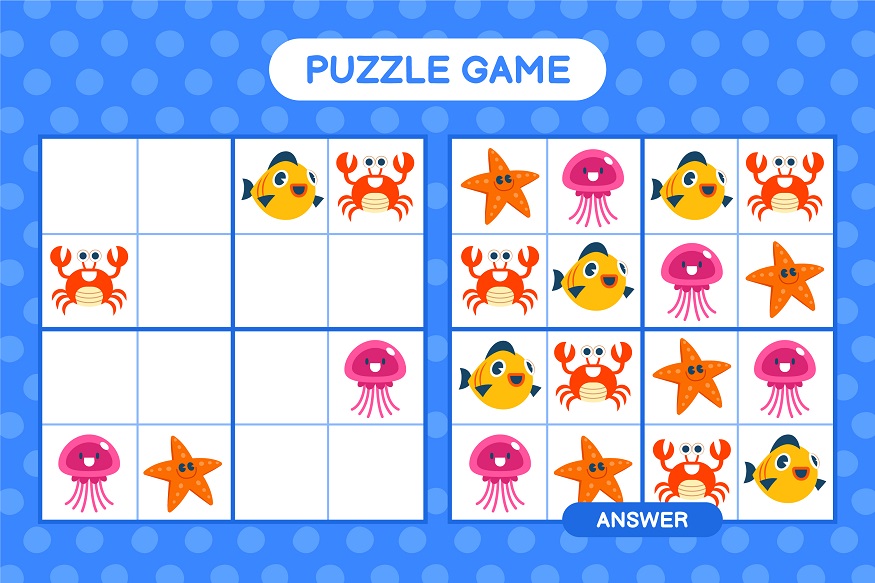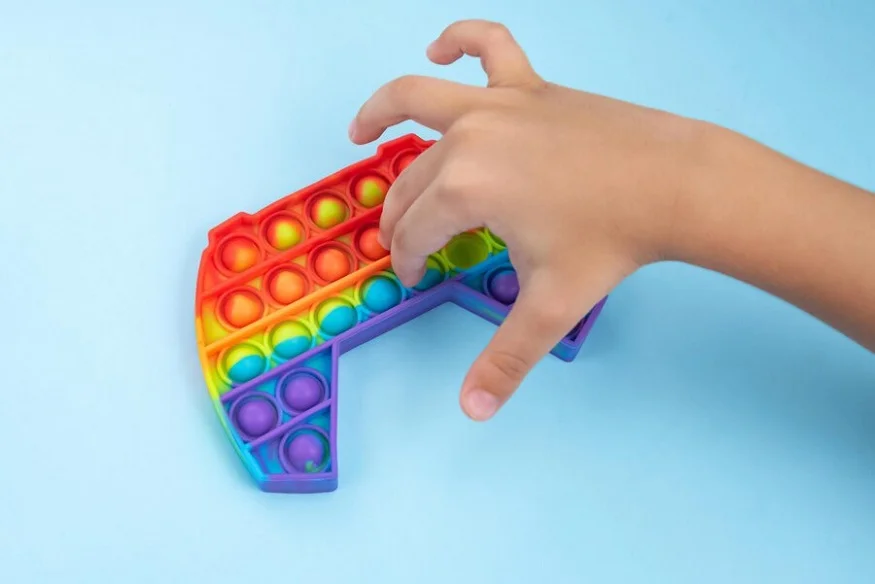Have you ever come across a puzzle that seemed like a combination of wordplay and picture magic? If so, you might have encountered the intriguing world of Rebus Puzzles with answers. These enigmatic brain teasers have captured the hearts of puzzle enthusiasts of all ages, offering a delightful mix of challenge and entertainment. We will unravel the meaning and types of Rebus Riddles, provide you with tips to solve them and explore the benefits of engaging in these mind-bending riddles.
Also Read: Steps to Solve a Rubik’s Cube for Beginners
What Are Rebus Puzzles?
Rebus puzzles are a unique form of word and picture puzzles that use images, letters, and symbols to represent words or phrases. These visual conundrums challenge your ability to decipher the underlying message hidden within the puzzle. The term “rebus” originates from the Latin phrase “non-verbis sed rebus,” which means “not by words, but by things.” Essentially, a rebus puzzle communicates its meaning through symbols rather than straightforward language.
Types of Rebus Puzzles with Answers:
Rebus puzzle’s meaning comes in various forms, each with its own set of challenges. Let’s explore some popular types, along with examples:
- Picture Rebus:
– Example:
T
I
M
E
Answer: Once Upon A Time
- Letter Rebus:
– Example:
“R” “U”
“OK”
Answer: Are you okay?
- Sound Rebus:
– Example:
Picture of a “bee” + “leaf”
Answer: Believe
- Hidden Word Rebus:
– Example:
T E A
S O N
P E N
Answer: Stepson
Tips to Solve Rebus Puzzles:
Now that you know what rebus riddles are, let’s delve into some effective strategies to help you conquer these delightful brain teasers:
- Observe Carefully: The key to solving rebus puzzles lies in keen observation. Analyse each element of the puzzle, paying attention to colours, shapes, and positions of images or letters.
- Break it Down: Sometimes, rebus puzzles with answers can be complex at first glance. Break down the puzzle into smaller parts and try to decipher the meaning of each element individually.
- Word Association: Associate the images or letters with common words or phrases that they sound or look like. This approach can help you connect the dots and solve the puzzle.
- Context Matters: Consider the context of the rebus puzzle’s meaning. Sometimes, a theme or topic may provide clues to the hidden message.
Also Read: Tips for Child Development in the First 5 Years
Elaborating on the Benefits of Engaging in Rebus Puzzles:
Beyond being an enjoyable pastime, solving rebus puzzles offers several cognitive and educational benefits:
- Enhances Creative Thinking: Rebus riddles meaning is to challenge your brain to think creatively and find unconventional connections between images and words. As you decipher the symbols and translate them into meaningful phrases, your mind becomes more adept at exploring alternative solutions to problems in various aspects of life. This creativity can extend to artistic pursuits, problem-solving in professional settings, and thinking outside the box in daily challenges.
- Enhances Problem-Solving Skills: As you work through rebus puzzles meaning, you build up strong problem-solving skills that will help you confidently face obstacles in various spheres of your life. You will become a more effective and efficient problem solver as a result of the analytical abilities you develop while resolving these riddles. Both in one’s personal and professional life, it may be quite beneficial to have the capacity to dissect complicated issues into smaller, more manageable pieces and to analyse various components.
- Improves Visual Perception: Observing and interpreting the images in rebus puzzles can sharpen your visual perception and pattern recognition skills. Your brain learns to quickly identify shapes, colours, and symbols, which can have practical applications in everyday life, such as recognizing road signs, finding items in cluttered spaces, or remembering faces. Enhanced visual perception can also be beneficial in fields such as design, art, and architecture.
- Promotes Vocabulary and Language Skills: Engaging with rebus puzzles with answers can expand your vocabulary and improve your understanding of wordplay and homophones. As you encounter various representations of words and phrases, you become more adept at recognizing linguistic patterns and developing a richer vocabulary. Strong language skills are valuable in communication, writing, and understanding complex texts, making rebus puzzles a fun and educational way to strengthen these abilities.
Stories and Anecdotes Related to Rebus Puzzles:
Rebus riddles have a long history of intriguing people and sparking creativity. One such story involves a famous author who used rebus puzzles as an unconventional method to communicate with a friend.
Charles Dodgson, better known as Lewis Carroll, the author of “Alice’s Adventures in Wonderland,” was fond of creating rebus puzzles. He once crafted a rebus letter for his close friend, Gertrude Chataway. The rebus letter was a delightful combination of pictures, symbols, and letters, conveying a heartfelt message. The puzzle read:
I (eye) + Fish + U (letter U) + Wish + U (letter U) + A (letter A) + Merry (image of a merry-go-round)
When solved, it translated to “I wish you a merry-go-round,” a clever play on words and symbols to convey a warm greeting. This charming example showcases how rebus puzzles can be both entertaining and a unique way to express sentiments.
Also Read: 10 Ways to Promote Your Child’s Cognitive Development
More Advanced Solving Techniques:
For those seeking an extra challenge, consider these advanced techniques for solving rebus puzzles:
- Letter Substitution: In some rebus riddles, a single letter or symbol might represent an entire word or phrase. Experiment with different letter substitutions to unlock the hidden message.
- Compound Words: Look for combinations of images or letters that form compound words. These compound words could be the answer to the puzzle.
- Reversed Words: In certain rebus puzzles, words might be spelt backwards, so be on the lookout for such instances.
- Homonyms and Homophones: Explore words that sound the same but have different meanings, known as homophones. These may inspire original and surprising answers. To illustrate the words “eye tree” (i.e., “I see”), a picture of an “I” and a picture of a “tree” might be used.
Unravel the Enigma of Rebus Puzzles:
Also Read: Top 10 Ways to Utilise Maths Formulas in Day-to-Day Life
In conclusion,
Rebus puzzles are a fascinating and engaging method to challenge your brain while still having fun. These mind-bending puzzles provide puzzle fans of all ages with a distinctive challenge with their deft use of imagery and words. By observing carefully, breaking down the elements, using word association, and employing more advanced techniques, you can crack the code of even the most perplexing rebus puzzles.
Euroschool is excited to introduce the fascinating world of Rebus Puzzles to its students. Rebus puzzles are a unique form of brain teasers that challenge students’ cognitive abilities while providing a fun and engaging experience. These puzzles employ a creative blend of images, letters, and symbols to represent words or phrases, encouraging students to think critically and analytically. Through the process of solving rebus puzzles, students enhance their vocabulary, develop strong problem-solving skills, and improve their visual perception and pattern recognition abilities. These benefits extend beyond the puzzle-solving realm and have practical applications in academic subjects and daily life. Euroschool believes that by incorporating Rebus Puzzles into our curriculum, we can foster creative thinking and equip our students with valuable cognitive skills that will serve them well in their academic journey and beyond.









